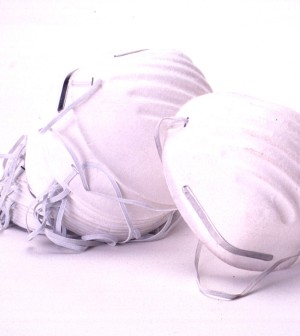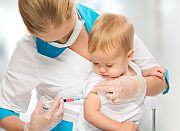- Could Your Grocery Store Meat Be Causing Recurring UTIs?
- Are You Making This Expensive Thermostat Error This Winter?
- Recognizing the Signs of Hypothyroidism
- 10 Strategies to Overcome Insomnia
- Could Artificial Sweeteners Be Aging the Brain Faster?
- Techniques for Soothing Your Nervous System
- Does the Water in Your House Smell Funny? Here’s Why
- Can a Daily Dose of Apple Cider Vinegar Actually Aid Weight Loss?
- 6 Health Beverages That Can Actually Spike Your Blood Sugar
- Treatment Options for Social Anxiety Disorder
Long-Term Study Finds Measles Vaccines Safe


Two measles-containing vaccines are safe, according to a new 12-year study.
The research included children between the ages of 12 to 23 months. Some youngsters received the combination measles-mumps-rubella-varicella (MMRV) vaccine. Others were given separately administered measles-mumps-rubella and varicella (MMR + V) vaccines, but they received both vaccines on the same day.
In total, the researchers at the Kaiser Permanente Vaccine Study Center in California looked at almost 125,000 MMRV doses and nearly 600,000 MMR + V doses.
“Our findings offer reassurance that adverse outcomes of measles-containing vaccines are extremely rare and unlikely, and that parents of 1-year-old children can choose MMR + V instead of MMRV vaccines to reduce the low risk of fever and febrile seizures,” study lead author Dr. Nicola Klein, co-director of the vaccine study center, said in a Kaiser Permanente news release.
The vaccines didn’t increase children’s risk of seven types of neurological, blood or immune system disorders. No other safety concerns were identified with either vaccine, according to the researchers.
The study, published online Jan. 5 in Pediatrics, also confirmed previous findings that the two vaccines are associated with fever and fever-related (febrile) seizures in 1-year-old children. These types of seizures usually happen seven to 10 days after vaccination. The study also found that the MMRV is more likely to cause febrile seizures than MMR + V.
The researchers emphasized that the risk of febrile seizures is small. They occur in less than one of every 1,000 vaccine injections, the study authors said.
“This level of safety monitoring for vaccines can give the public confidence that vaccine surveillance is ongoing and that if a safety problem existed, it would be detected,” Klein said in the news release.
More information
The American Academy of Family Physicians has more about childhood vaccines.
Source: HealthDay
Copyright © 2026 HealthDay. All rights reserved.










